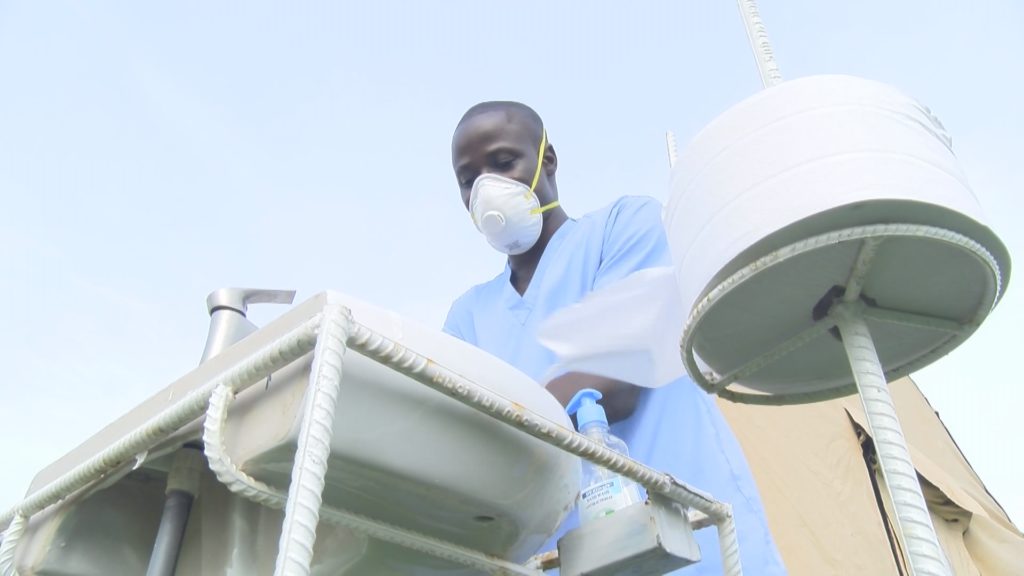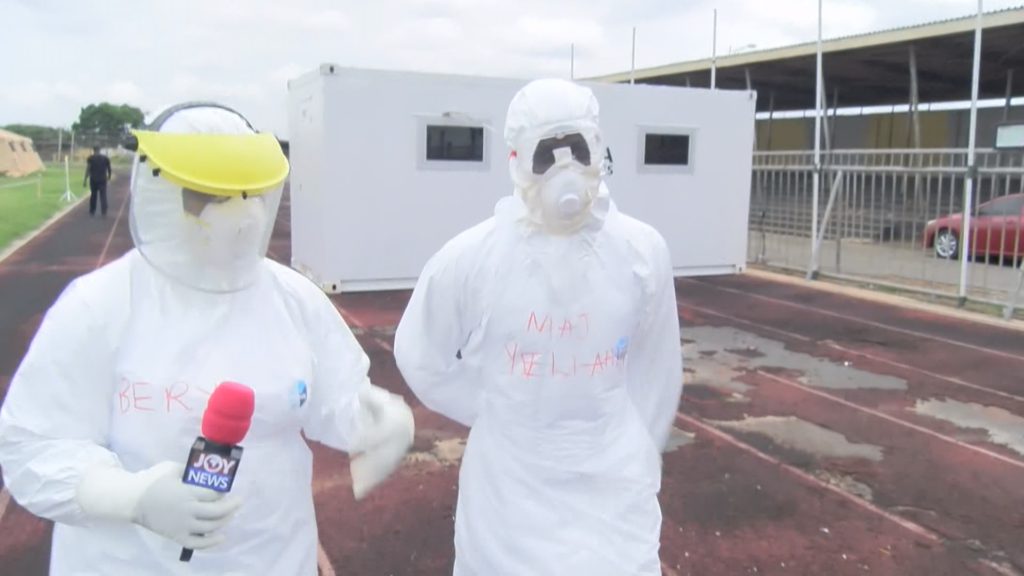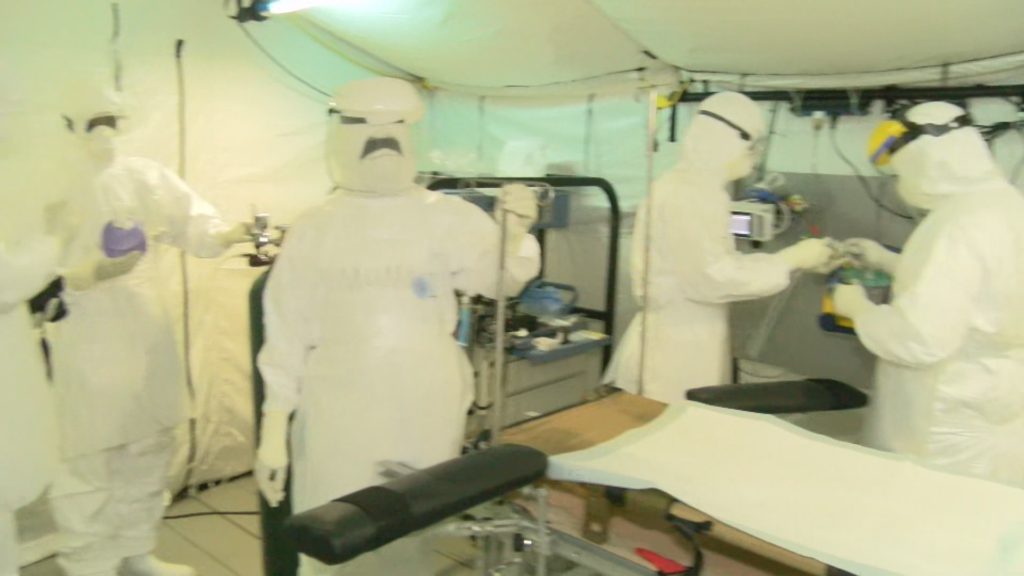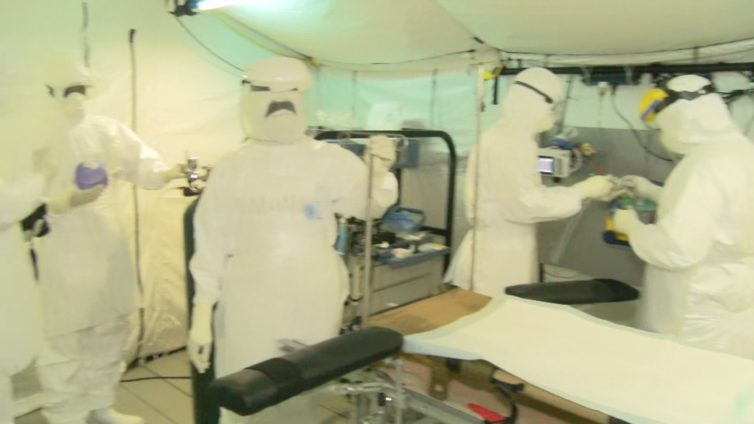All over the world, the novel coronavirus is taking an unprecedented toll on health infrastructure. This pandemic has even overwhelmed developed countries with some of the best healthcare systems in the world crashing.
At the core of the fight against this virus are frontline healthcare workers whose work has even become more dangerous in these times.
In Ghana, there have been concerns by some of them about the lack of or inadequate Personal Protective Equipment (PPE) required to aid them to perform their duties safely and effectively.

It is therefore an undeniable fact that the role of these healthcare workers in the Covid-19 battle cannot be underestimated. But while they continue with their heroic efforts, they also have to grapple with stigma from the communities in which they live.
One of such frontline healthcare workers is Major Mathias Yeli-Ahig, Deputy Camp Commandant at the Elwak Level 2 Covid-19 Isolation and Treatment Centre. He is part of the over 20 health workers deployed from the Ghana Armed Forces to help manage and care for persons at the Elwak Covid-19 Centre.
As a health worker, he understands the hazards associated with the job at hand. “We took an oath to defend this country by air, land, and sea even at the peril of our lives. So when the very moment came for you to put that oath to work or to really stand by the words you said before the Commander-In-Chief, we don’t hesitate. We rather take pride in that opportunity”, he said when quizzed about his view on the dangers associated with the job.

Just like other front liners, he has encountered challenges with regards to the stigma he sometimes faces from friends.
“This video that is being filmed; the next moment you see a friend, he’ll be like; 'boy ibi like last time I see you for TV top, you dey the Covid Centre? Okay, maintain some distance whiles we talk.' You know it’s funny but indirectly the person has shown that level of stigmatisation,” he said in an interview with JoyNews.

“Our greatest concern is the patients. Once they leave here and they have been declared recovered; it means they have recovered. There is no point trying to avoid them. The worst of it is the non-verbal communication”, said Major Yeli-Ahig on the stigma faced by persons who have recovered from the disease.
He explains that the best thing to do is “when they come back, that is when we show them love. We try to learn from their experiences. They will share the stories that they went through so that we will know that indeed what we are up against as a nation is real”.
Latest Stories
-
Coconut Grove Beach Resort marks 30 years of excellence with memorable 9 lessons & carols service
4 minutes -
WAFU B U-17 Girls’ Cup: Black Maidens beat Nigeria on penalties to win inaugral tournament
49 minutes -
Real Madrid beat Sevilla to keep pressure on leaders Atletico
2 hours -
Liverpool put six past Spurs to go four points clear
2 hours -
Manchester United lose 3-0 at home to Bournemouth yet again
2 hours -
CHAN 2024Q: ‘It’s still an open game’ – Didi on Ghana’s draw with Nigeria
2 hours -
CHAN 2024Q: Ghana’s Black Galaxies held by Nigeria in first-leg tie
3 hours -
Dr Nduom hopeful defunct GN bank will be restored under Mahama administration
4 hours -
Bridget Bonnie celebrates NDC Victory, champions hope for women and youth
4 hours -
Shamima Muslim urges youth to lead Ghana’s renewal at 18Plus4NDC anniversary
5 hours -
Akufo-Addo condemns post-election violence, blames NDC
5 hours -
DAMC, Free Food Company, to distribute 10,000 packs of food to street kids
6 hours -
Kwame Boafo Akuffo: Court ruling on re-collation flawed
6 hours -
Samuel Yaw Adusei: The strategist behind NDC’s electoral security in Ashanti region
7 hours -
I’m confident posterity will judge my performance well – Akufo-Addo
7 hours

